Discover the six essential types of funding for businesses in this comprehensive guide. Learn how to secure the capital you need to grow your venture successfully.
Are you a budding entrepreneur or a business owner looking to expand your operations? One of the key challenges you may face is securing the right funding for your enterprise. In this article, we’ll delve into the world of business funding and explore the six types of financing options available to help you achieve your goals.
Introduction
Funding is the lifeblood of any business. Whether you’re starting a new venture or aiming to take your existing business to the next level, having access to the right type of capital is crucial. Understanding the various funding options at your disposal can significantly impact your business’s success.
In this comprehensive guide, we’ll walk you through the six primary types of funding for businesses. From traditional bank loans to innovative crowdfunding platforms, we’ve got you covered. So, let’s dive in and explore the world of business financing.
1. Bootstrapping: Fueling Your Business with Personal Savings
Bootstrapping is often the first step for many entrepreneurs. It involves using your savings or revenue generated by the business to fund its operations. While this approach provides you with full control, it can be risky as you’re investing your own money.
- Pros: Full control, no debt, and quick decision-making.
- Cons: Limited funds, personal financial risk, and slower growth potential.
2.Angel Investors: Seeking Support from High-Net-Worth Individuals
Angel investors are wealthy individuals who provide capital to startups in exchange for equity. They often bring valuable expertise and connections, making them attractive partners for early-stage businesses.
- Pros: Expertise, networking opportunities, and mentorship.
- Cons: Equity dilution and potential conflicts of interest.
3. Venture Capital: Scaling with Institutional Investors
Venture capital firms pool funds from various sources to invest in high-potential startups. They typically seek businesses with rapid growth potential and are willing to take calculated risks.
- Pros: Access to substantial capital, expert guidance, and industry connections.
- Cons: Equity dilution, loss of control, and intense scrutiny
4. Bank Loans: Traditional Financing for Established Businesses
Banks offer loans to businesses based on their creditworthiness and financial history. These loans can be used for various purposes, such as working capital, expansion, or equipment purchases.
- Pros: Stable funding, fixed interest rates, and established credibility.
- Cons: Stringent qualification criteria, collateral requirements, and interest costs.
5. Crowdfunding: Engaging the Power of the Crowd
Crowdfunding platforms like Kickstarter and Indiegogo allow businesses to raise capital from a large number of individuals. This approach can be particularly effective for innovative and consumer-focused projects.
- Pros: Access to a wide audience, validation of ideas, and minimal equity dilution.
- Cons: Time-consuming campaigns, fees, and the need for compelling marketing.
6. Business Grants: Non-Repayable Funds for Specific Purposes
Business grants are funds provided by government agencies, foundations, or corporations to support businesses in specific industries or for specific purposes. These grants do not require repayment but often come with strict eligibility criteria.
- Pros: Non-repayable funds, industry recognition, and support for specific initiatives.
- Cons: Highly competitive, stringent requirements, and limited availability.
FAQs
How do I decide which funding option is right for my business?
Selecting the right funding option depends on your business’s stage, goals, and financial health. Consider factors like the amount of capital required, your willingness to give up equity, and the level of risk you’re comfortable with.
Are there any government grants available for startups?
Yes, many governments offer grants to support startups, particularly in innovative or socially beneficial sectors. Research your local government’s programs and eligibility criteria to find opportunities.
Can I combine multiple funding sources?
Absolutely. Many businesses use a mix of funding sources to meet their financial needs. Just ensure you can manage the obligations that come with each type of funding.
What should I prepare before approaching investors or lenders?
Before seeking external funding, have a solid business plan, financial projections, and a clear understanding of how the funds will be used. Being well-prepared increases your chances of securing funding.
How long does it typically take to secure funding?
The time frame varies depending on the type of funding and the complexity of your business. Angel investments and crowdfunding campaigns can be quicker, while securing venture capital or bank loans may take several months.
What are some alternative financing options for businesses?
Beyond the six primary funding types mentioned, alternative options like peer-to-peer lending, business credit cards, and revenue-based financing are worth exploring. Each has its advantages and considerations.
Conclusion
Securing the right funding is a critical step in realizing your business dreams. Whether you opt for bootstrapping, angel investors, venture capital, bank loans, crowdfunding, or business grants, make sure it aligns with your business goals and financial strategy. Remember, each funding type has its advantages and challenges, so choose wisely. With the right funding in place, your business can thrive and reach new heights.


